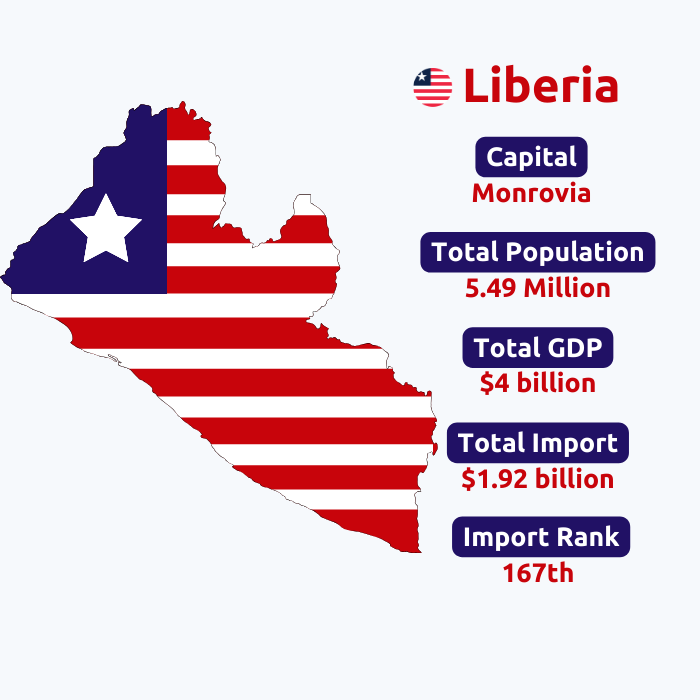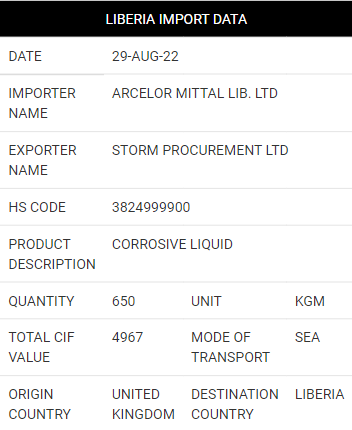Liberia Import Data
The Republic of Liberia is another name for Liberia. It's situated on the coast of West Africa. The land area of this nation is approximately 111,369 km^2. Liberia borders several nations, including Sierra Leone, Guinea, and the Ivory Coast. With more than 70% of the workforce employed and accounting for 38.8% of the country's GDP, agriculture is Liberia's most important industry. In today's highly globalized world, access to accurate and timely import data is crucial for international traders seeking to expand their business horizons. Liberia, a vibrant country located in West Africa, has been steadily emerging as a key player in international trade.
According to Liberia’s import data, Liberia brought in $1.7 billion worth of products in 2023, a 13% increase from the previous year. According to import statistics, Liberia ranked 166th out of 226 nations in terms of total imports as per the data on Liberia imports. Mineral fuels and oils are the biggest imports of Liberia, while Ivory Coast is the biggest import partner of Liberia. Liberia’s total GDP is $9 billion, and its GDP import share is 94.54%. Liberia is a part of trading blocs such as WTO and ECOWAS. We will now explore the significance of Liberia shipment data and its role in shaping business strategies and decision-making processes in 2023.





